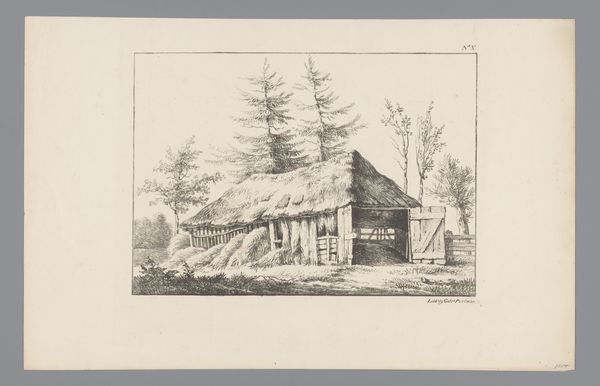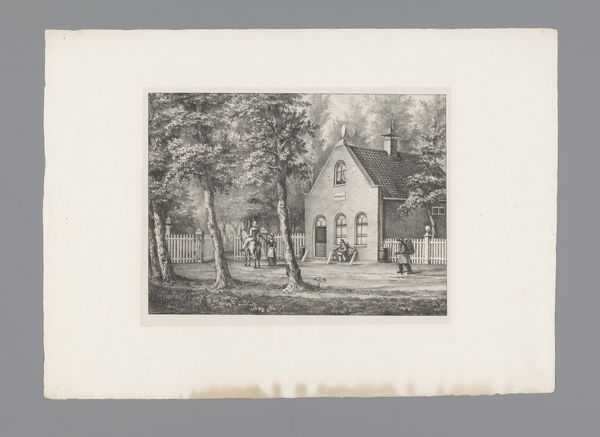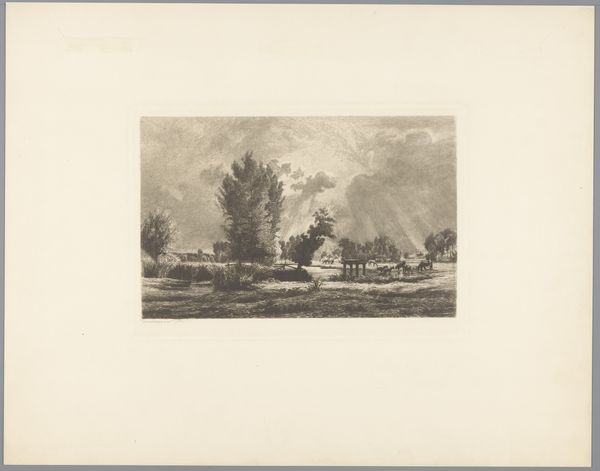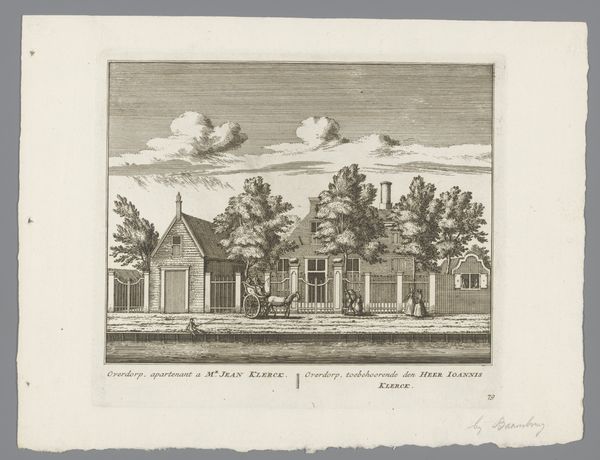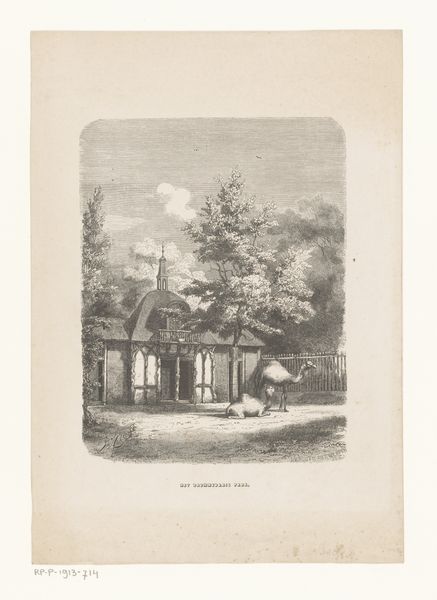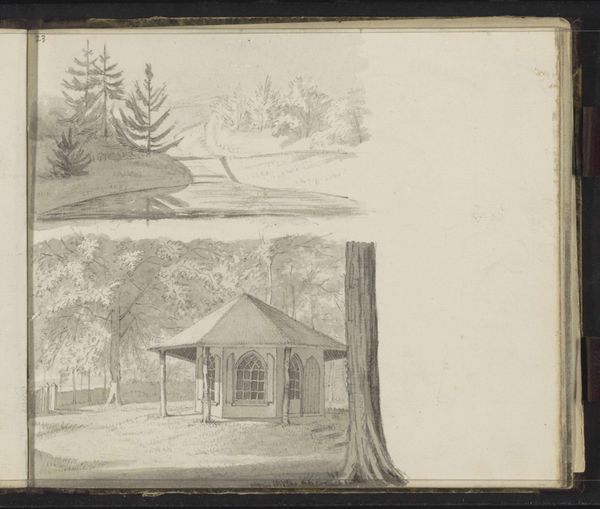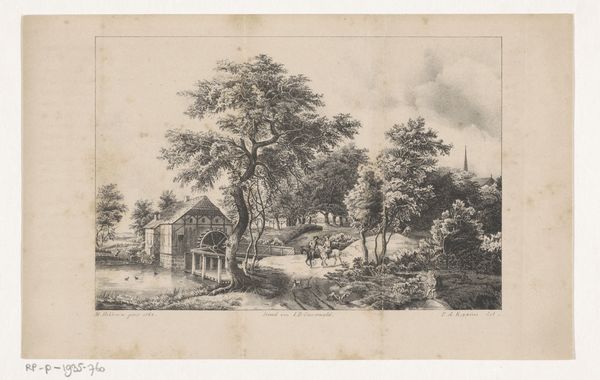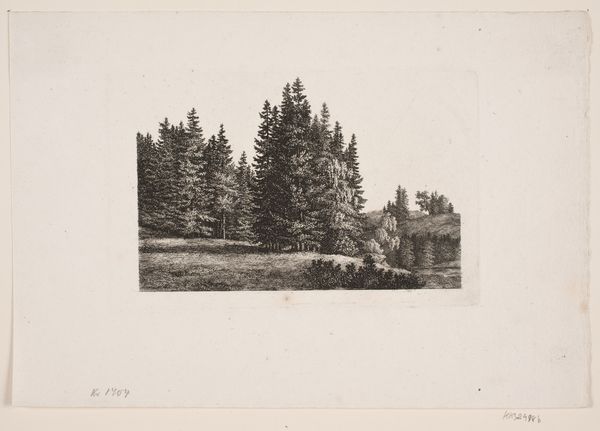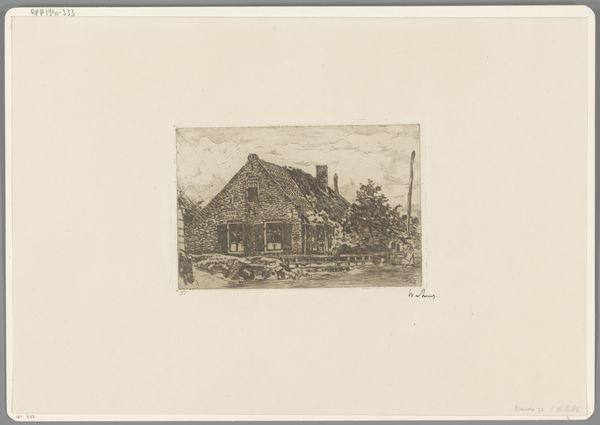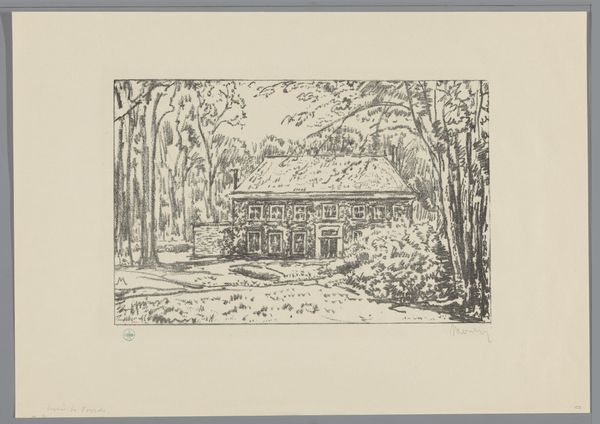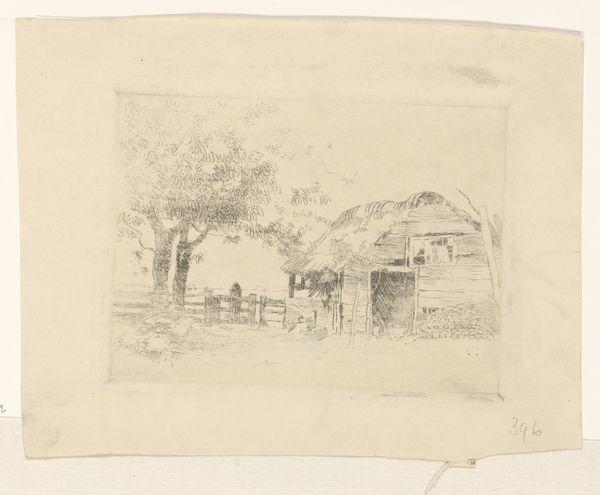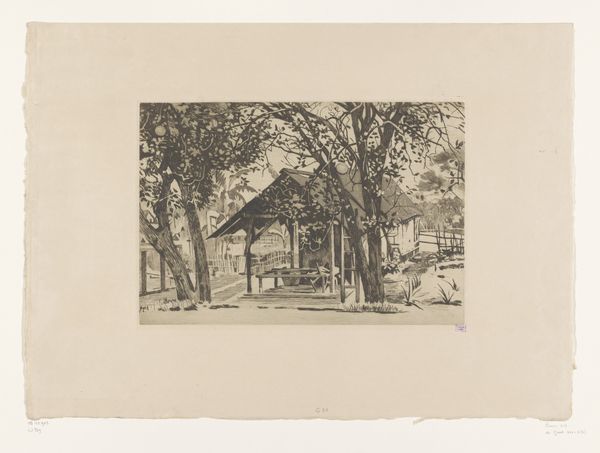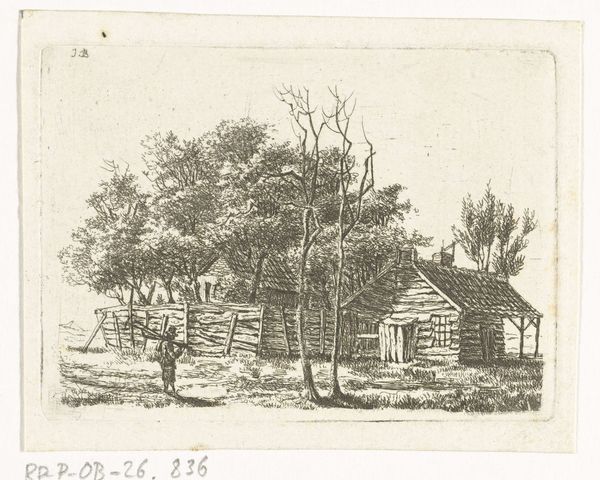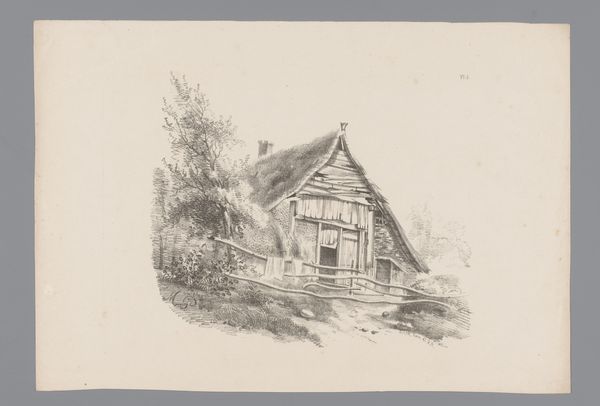
drawing, etching, paper
#
drawing
#
neoclassicism
#
etching
#
landscape
#
paper
Dimensions: height 270 mm, width 385 mm
Copyright: Rijks Museum: Open Domain
Petrus Josephus Lutgers rendered "Buitenplaats Geynzicht" with graphite, capturing a scene seemingly steeped in serene domesticity. Yet, within this calm facade, we find symbols echoing across epochs. The row of trees lining the property has long represented not just nature's bounty but also protection and continuity. Consider the 'arbor vitae', the tree of life, a motif stretching from ancient Near Eastern art to Klimt's interpretations, embodying immortality and interconnectedness. Even the presence of a fence, a structure meant to secure and define, calls to mind humanity's age-old quest to order the world, a boundary against the untamed. But does this order truly quell our inner anxieties? Recall the romantic landscapes of Caspar David Friedrich, where nature evokes both awe and existential dread. Lutgers, in his meticulous detail, reveals a similar tension. The house, a beacon of stability, is almost swallowed by the surrounding flora. Is this a vision of pastoral harmony, or does it betray the fragile nature of human endeavor against the backdrop of time? These anxieties are timeless, resurfacing in new forms, proving that the past is never truly gone.
Comments
No comments
Be the first to comment and join the conversation on the ultimate creative platform.
